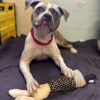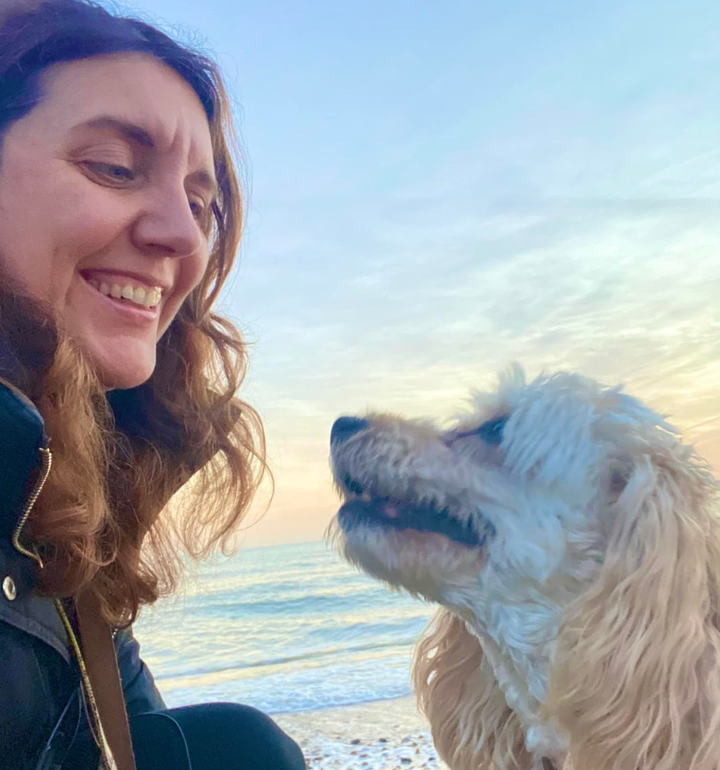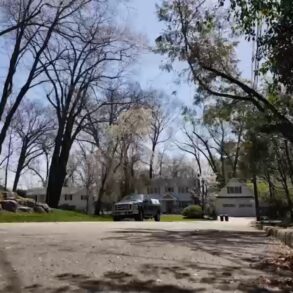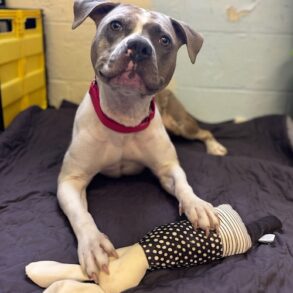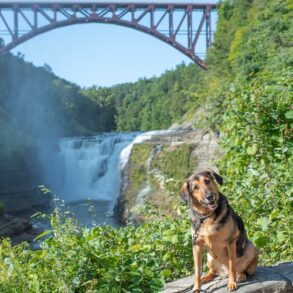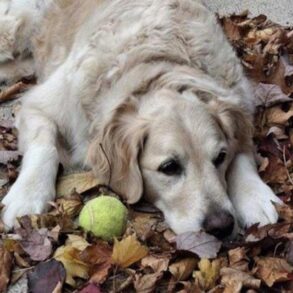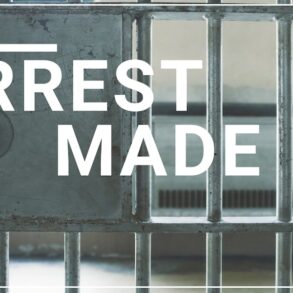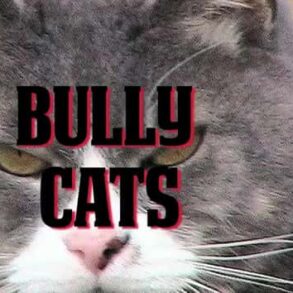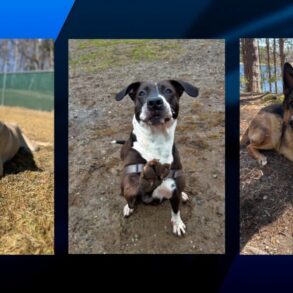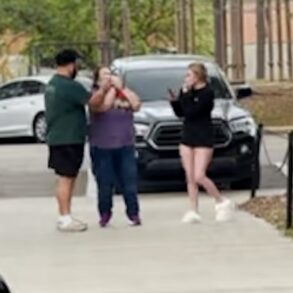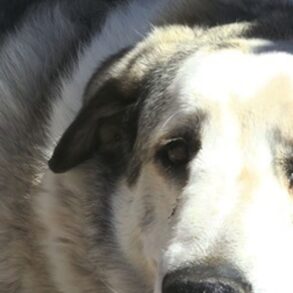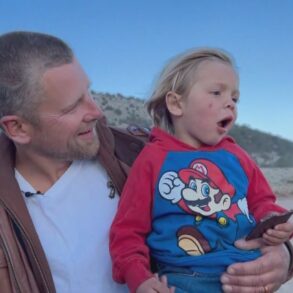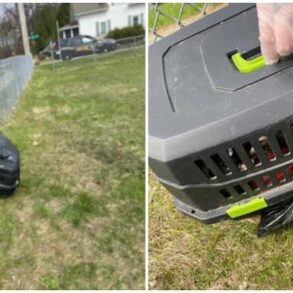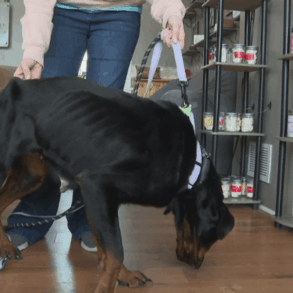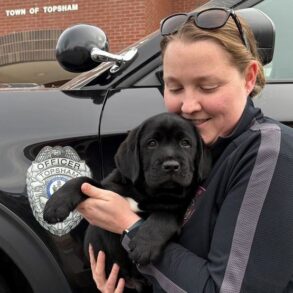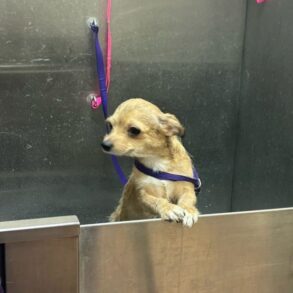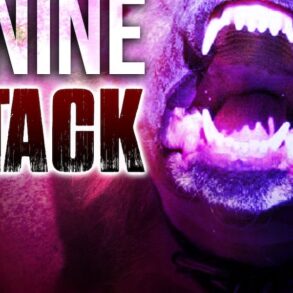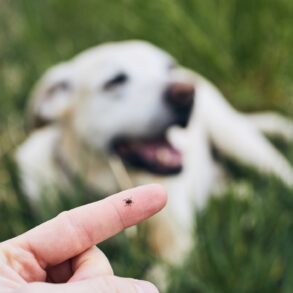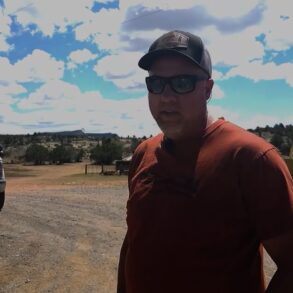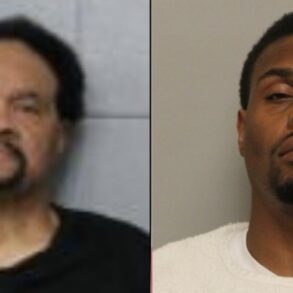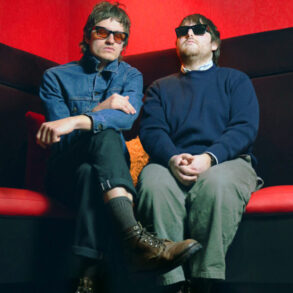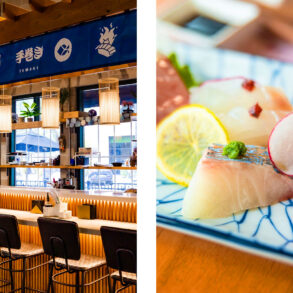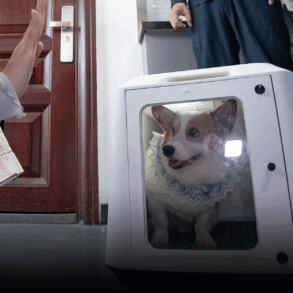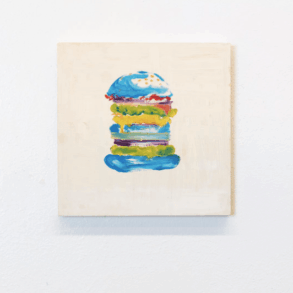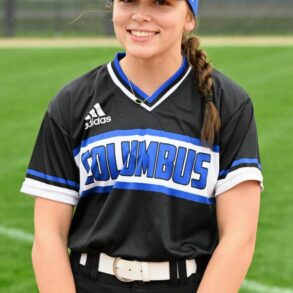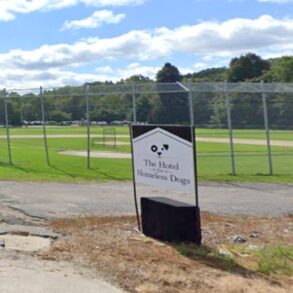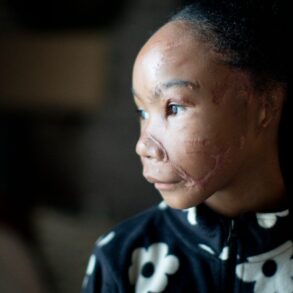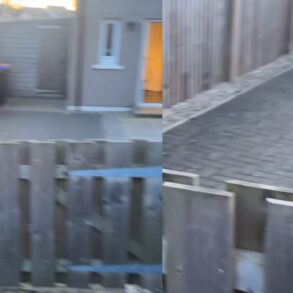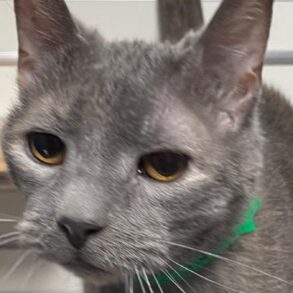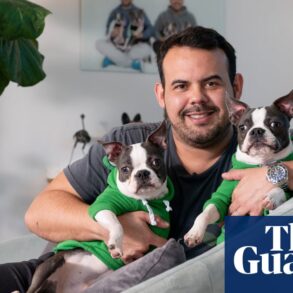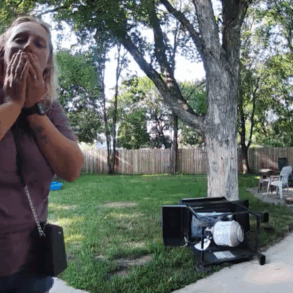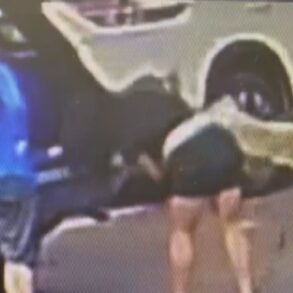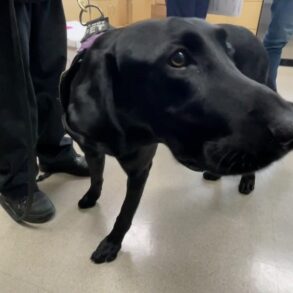“I can give her some sedation, so she doesn’t feel anything,” the vet said, standing above Lola, my companion for 14 years. He’d put dogs to sleep hundreds of times, but for me, this was one of the worst experiences I’d ever had, and I hated having to decide to end her life.
Lola had dementia and cancer. She wasn’t sleeping well and didn’t recognize me anymore.
When she stopped eating, I knew I had to do something.
As the life-ending drug began to enter her body following the sedation, my gorgeous cavapoo bolted upright from the comfy position I had been holding her in on the sofa, gasped suddenly, panted and then slumped over.
The vet was unable to get the full dose into the tiny vein on her arm after several attempts and had to go into the side of her body.
The horror of that scene still traumatizes me.
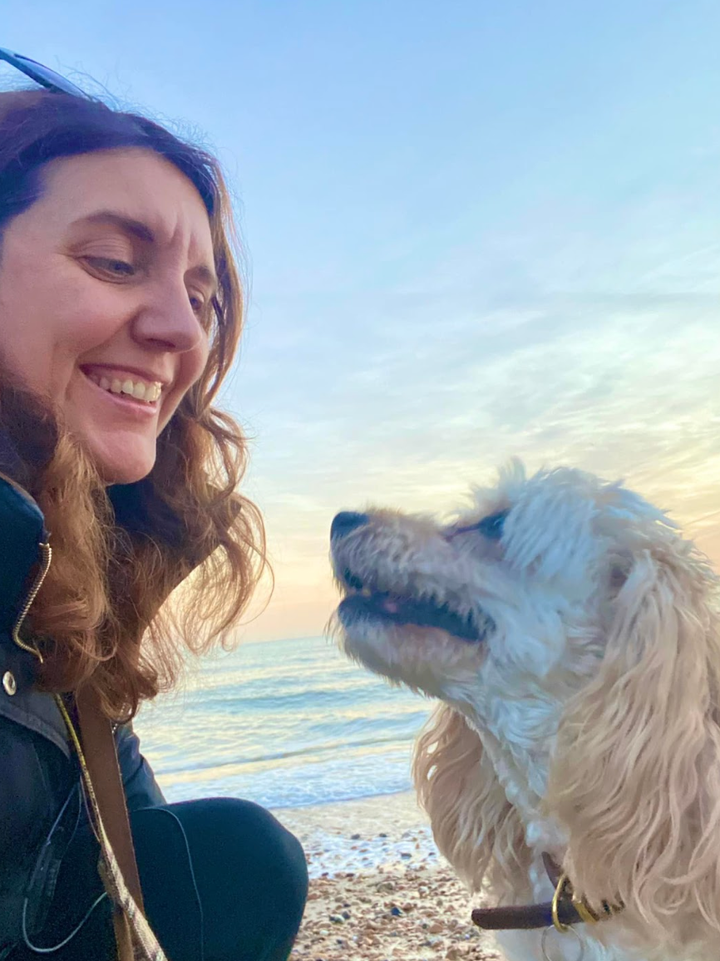
I carried Lola’s lifeless body to my car shrouded in a black sheet and we made our final journey to the pet crematorium together.
Just a few hours later, as a staff member passed her remains back to me, now reduced to ashes in a box, I knew my life would never be the same.
It was like a part of me had died with her.
Lola was my COVID-19 lockdown circle companion, my globe-trotting travel buddy, my closest friend, and my only family — all wrapped up in an extremely cute cavapoo-shaped package. We’d traveled around the world together, including across New Zealand, Europe and the United Kingdom.
She was also an approved pet therapy visitor, and we regularly visited nursing home residents over the years. Lola had the most astonishing impact on them. One resident spoke for the first time in six months after spending time with her. Another started crying when Lola brushed her hand.
The grief I felt was terrible, and I knew I needed a change.




As I confronted the empty space left in her absence, I realized my life needed a new direction far away from familiar places and painful memories. So, I decided to set off on an adventure. I knew someone in Brazil, so I signed up to study Portuguese in Rio de Janeiro for a year.
However, as the old saying goes, “Wherever you go, there you are.”
Though I was miles away from where Lola and I had shared our lives, my grief had followed me to my new home and remained with me months after arriving in Brazil.
One day I was riding in an Uber when I saw a dog squeeze under a crack in a building. “Para, por favor!” I shouted to the driver, and I jumped out of the car.
When I looked into the hole in the building, I was astonished to see the dog had given birth to a litter of puppies! There was no easy way to get them out, so I called the fire department for help, but I could tell they didn’t care about this dog family and they gave up in under two minutes! I tried calling several nonprofits — or ONGs as they are known in Brazil — and the local government authorities, but no one would help.
The situation was dire, as several puppies had already died, so I left a large container of food and water, and vowed to return with someone who could rescue them.




By the following morning, I’d tracked down an “animal protector” who agreed to meet me at the building. Brazil has numerous individuals who identify as animal protectors and they aid animals — often street dogs — by using their own money or fundraising. Brazil is said to have millions of street dogs — thousands of them in Rio de Janeiro alone — and there are no large charitable organizations addressing the issue.
I headed back to the building the mom and her puppies were trapped in with my new animal protector friend in hopes of getting everybody out safely. It was especially challenging because the pups were behind a piece of wood and over 6 feet away from the opening to the building.
So, we got creative!
At first, we tried a SUP paddle, which was extra long with a fin at its end. We still couldn’t get behind the wood, so we taped an empty, half-open milk carton to the end of the paddle, which, after an hour of attempts, allowed us to scoop the puppies toward us.
Our stress and anxiety turned to elation. I held the sweet, vulnerable, 2-day-old puppies in my hands and saw the mama dog’s relieved face as I brought them to her one by one. I instantly felt an incredible bond with this family and I promised to do my absolute best to find them great homes.
But first I took Mum and the babies to the vet for tests and any treatments they needed, and then housed them in a kennel in my apartment. I had a tiny studio at the time and the costs of caring for them quickly ate into my savings, but I didn’t care. I was just so relieved they were all safe.
I didn’t know it at the time, but that was the day I became an animal protector.
Since then, I’ve rescued over 15 animals — mostly dogs that I have rescued, vaccinated, had neutered or spayed, and rehomed, but I have also cared for a sick and starving cat and various birds in ill health.
I’ve saved a black Labrador, a baby Great Kiskadee bird who fell from his nest and couldn’t be reunited with his Mum, and a French bulldog-like mix called Benny — who was presumably abandoned because he had cancer — among many other beautiful creatures.




The love I gave to these sweet animals was nothing in comparison with the love I received in return, and with each rescue I made — and every life I saved — I felt like I was gradually putting pieces of my broken heart back together.
Initially, I tried to find their owners, but it soon became clear to me that if you find a dog on the street without an ID tag, it’s probably been abandoned on purpose or never had a home in the first place.
Neutering and spaying is also frowned on by many people in Brazil, which exacerbates the street dog issue exponentially. I can only imagine how many unwanted litters there are at any given moment.
Once any health issues are resolved and the puppies are old enough, I work to rehome them.
Because I’ve worked for many years as a communications consultant, I thankfully don’t have any problems coming up with creative content for Instagram. However, my best recruitment strategy so far has been to dress the dogs up in “adopt me” T-shirts and take them to an upscale shopping mall. The shoppers can’t resist the dogs’ sweet faces and I almost always find excellent candidates who want to apply to adopt them.
My connection with the dogs does not end once they’re adopted. Everyone signs a contract that includes regular check-ins and a house visit after one year, so I can intervene if there are any problems.
I currently have three dogs of my own, but that might become four if I end up keeping my latest rescue, Benny.




That also includes Bambi, a puppy from the original litter I found in that building. Though I had tried to rehome her, she was still very sick after six months, and she came back to live with me.
I had told myself I could never own another dog again after Lola, but with Bambi, something clicked and it felt completely out of my control.
I can vividly recall the exact moment I knew I could not give her up again. I hadn’t felt that much love, care and connection with another dog since Lola died.
Rescuing all of these animals has helped me process my grief, and mended the emotional scars and huge chasm left by the loss of such a significant companion in my life.
I’ve also found a new sense of identity and purpose that isn’t tied to my corporate consulting business. There is a distinct satisfaction that comes from knowing these animals are living their best lives. My rescue initiative has even led me to new friendships with the local community in Rio de Janeiro and helped me to learn Portuguese.
My plan is to rescue any animal that shows up and needs my help. My friends have started calling me “Dr. Dawnlittle,” and I am considering starting my own nonprofit once I have enough money to rent a space to house and care for all of them.




We Don’t Work For Billionaires. We Work For You.
Already contributed? Log in to hide these messages.
I now know that being resilient is about more than simply being able to endure life’s problems — it’s about turning adversities into opportunities. Trauma and grief are almost certainly going to visit all of us at some point in our lives — maybe many times — but there are ways forward and it’s what you do with your pain that counts.
Dawn Carrington is an award-winning communications strategist and writer. She has worked as a BBC journalist, a publicist for the U.K. Royal Family, and as a publicist for Lord David Cameron during his term as prime minister. In addition to founding a PR and communications company, Dawn runs a street dog rescue initiative in Rio de Janeiro. You can find her at dawncarrington.com and on LinkedIn, and follow her rescue on Instagram.
Do you have a compelling personal story you’d like to see published on HuffPost? Find out what we’re looking for here and send us a pitch at pitch@huffpost.com.
rnrn”,”
rnrn”,”
rnrn”],”adCount”:0}}”>
This post was originally published on this site be sure to check out more of their content.


